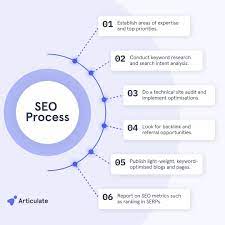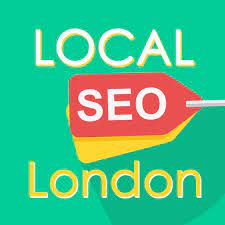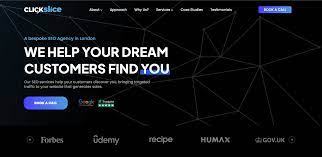Mastering the Art of Technical SEO: Enhancing Your Website’s Performance
The Importance of Technical SEO in Boosting Website Performance
When it comes to search engine optimisation (SEO), most people think of keywords, content, and backlinks. However, one crucial aspect of SEO that often goes unnoticed is technical SEO. Technical SEO focuses on the infrastructure of your website and how well search engine crawlers can access and index your site.
Here are some key reasons why technical SEO is essential for boosting your website’s performance:
Site Speed
Technical SEO involves optimising your website for speed. Search engines like Google consider page speed as a ranking factor. A fast-loading website not only provides a better user experience but also improves your chances of ranking higher in search results.
Mobile-Friendliness
In today’s mobile-first world, having a mobile-friendly website is crucial. Technical SEO ensures that your site is responsive and displays correctly on various devices. Google prioritises mobile-friendly websites in its search rankings, making this aspect of technical SEO indispensable.
Indexing and Crawling
A well-optimised website structure makes it easier for search engine crawlers to navigate and index your content effectively. By addressing issues such as broken links, duplicate content, and XML sitemaps, you can ensure that search engines can discover and rank your pages efficiently.
Schema Markup
Implementing schema markup on your website helps search engines understand the context of your content better. This can lead to rich snippets in search results, enhancing visibility and click-through rates. Technical SEO involves incorporating schema markup to improve the way search engines interpret your content.
Security
Website security is paramount both for user trust and search engine rankings. Technical SEO includes implementing HTTPS encryption, securing sensitive data, and protecting against malware or hacking attempts. A secure website not only safeguards user information but also signals trustworthiness to search engines.
In conclusion, technical SEO plays a vital role in enhancing the overall performance of your website in the digital landscape. By focusing on aspects such as site speed, mobile-friendliness, indexing, schema markup, and security, you can create a solid foundation for improved visibility and higher rankings on search engine results pages.
22 Essential Questions Answered: Demystifying Technical SEO for Beginners and Experts Alike
- Whats the difference between SEO and technical SEO?
- How do I start technical SEO?
- What is technical SEO and on page SEO?
- What is simple example of technical SEO?
- Is technical SEO difficult?
- What is SEO vs technical SEO?
- What is the difference between technical SEO and on-page SEO?
- What are the 4 types of SEO?
- What is technical SEO in simple words?
- What are the technical SEO techniques?
- Why is technical SEO so important?
- How do you conduct technical SEO?
- What is a technical SEO?
- What is the technical SEO?
- Is technical SEO hard?
- What is technical SEO vs content SEO?
- What are the technical SEO?
- How is technical SEO done?
- What is SEO in technology?
- What is technical SEO and on-page SEO?
- What are the types of technical SEO?
- What is technical SEO Moz?
Whats the difference between SEO and technical SEO?
When discussing the difference between SEO and technical SEO, it’s important to understand that while SEO encompasses a broader range of strategies aimed at improving a website’s visibility in search engine results, technical SEO specifically focuses on the infrastructure and technical aspects of a website that influence its search engine performance. While traditional SEO involves content creation, keyword optimisation, and link building to enhance a site’s relevance and authority, technical SEO delves into areas such as site speed, mobile-friendliness, indexing, schema markup, and security measures to ensure that a website is optimised for search engine crawlers. In essence, SEO is the overarching strategy that includes technical SEO as a critical component essential for achieving optimal search engine rankings and visibility.
How do I start technical SEO?
Embarking on your technical SEO journey begins with a comprehensive website audit to identify areas for improvement. Start by assessing your site’s performance, including factors like site speed, mobile-friendliness, and indexing issues. Ensure that your website is optimised for search engine crawlers by fixing broken links, resolving duplicate content, and creating XML sitemaps. Implementing schema markup and enhancing website security are also crucial steps in starting technical SEO. By addressing these foundational elements, you can lay the groundwork for a robust technical SEO strategy that boosts your website’s visibility and performance in search engine results.
What is technical SEO and on page SEO?
Technical SEO and on-page SEO are two essential components of search engine optimisation that work hand in hand to improve a website’s visibility and ranking in search engine results. Technical SEO primarily focuses on the backend aspects of a website, such as site structure, page speed, indexing, and schema markup, to ensure that search engines can crawl and index the site effectively. On the other hand, on-page SEO deals with optimising individual web pages for specific keywords, quality content, meta tags, and internal linking to enhance user experience and relevance. While technical SEO lays the foundation for a well-optimised website structure, on-page SEO refines the content and elements within each page to attract organic traffic and engage users effectively. Both technical SEO and on-page SEO are crucial for achieving sustainable online visibility and driving organic traffic to a website.
What is simple example of technical SEO?
A simple example of technical SEO is optimising meta tags on web pages. Meta tags, such as meta titles and meta descriptions, provide search engines with information about the content of a webpage. By strategically incorporating relevant keywords and ensuring that these tags accurately reflect the page’s content, you can improve the chances of your website appearing in search engine results for specific queries. This basic yet crucial aspect of technical SEO helps search engines understand the relevance of your content to user searches, ultimately enhancing your website’s visibility and organic traffic.
Is technical SEO difficult?
Addressing the frequently asked question, “Is technical SEO difficult?” requires a nuanced understanding of the subject. Technical SEO can indeed be challenging for those without a background in web development or digital marketing. It involves intricate aspects such as website structure, coding, and server configurations that may seem daunting to beginners. However, with the right guidance, resources, and a willingness to learn, mastering technical SEO is achievable. While it may require time and effort to grasp the intricacies of technical SEO, the rewards in terms of improved website performance and search engine visibility make it a worthwhile investment for any online business looking to succeed in today’s competitive digital landscape.
What is SEO vs technical SEO?
In the realm of digital marketing, a common query that arises is the distinction between SEO and technical SEO. While SEO encompasses a broader spectrum of strategies aimed at improving a website’s visibility in search engine results, technical SEO specifically focuses on the backend aspects that enhance a site’s performance and accessibility to search engine crawlers. In essence, SEO involves content creation, keyword optimisation, and link building to boost organic traffic, while technical SEO delves into factors like site speed, mobile-friendliness, indexing, schema markup, and security protocols to ensure optimal crawling and indexing by search engines. Understanding this difference is crucial for implementing a comprehensive SEO strategy that encompasses both content relevance and technical excellence for maximum online visibility and success.
What is the difference between technical SEO and on-page SEO?
When discussing SEO strategies, it’s essential to understand the distinction between technical SEO and on-page SEO. Technical SEO primarily focuses on the backend elements of a website that affect search engine visibility, such as site speed, mobile-friendliness, indexing, schema markup, and security. On the other hand, on-page SEO deals with optimising individual web pages for specific keywords and user intent through content creation, meta tags, headings, and internal linking. While technical SEO ensures that search engines can crawl and index your site effectively, on-page SEO aims to enhance the relevance and quality of your content for both users and search engines. Both aspects are crucial in achieving a well-rounded SEO strategy that improves website performance and rankings.
What are the 4 types of SEO?
When discussing the various types of SEO, it is common to categorise them into four main categories: on-page SEO, off-page SEO, technical SEO, and local SEO. Each type serves a specific purpose in optimising a website for search engines. Technical SEO focuses on the backend elements of a website to improve its crawling and indexing by search engines. By addressing issues such as site speed, mobile-friendliness, indexing and crawling efficiency, schema markup implementation, and website security, technical SEO plays a crucial role in enhancing a website’s overall performance and visibility in search engine results.
What is technical SEO in simple words?
Technical SEO, in simple terms, refers to the process of optimising the infrastructure and technical elements of a website to improve its visibility and accessibility to search engines. It involves addressing issues such as site speed, mobile-friendliness, indexing, schema markup, and security to ensure that search engine crawlers can effectively navigate and index the site’s content. By focusing on the technical aspects of SEO, businesses can enhance their online presence and increase their chances of ranking higher in search engine results pages.
What are the technical SEO techniques?
When it comes to technical SEO techniques, there are several key strategies that website owners can implement to enhance their site’s performance and visibility. These techniques include optimising site speed to improve user experience and search engine rankings, ensuring mobile-friendliness for compatibility across various devices, implementing proper indexing and crawling practices for effective content discovery, utilising schema markup to provide search engines with context about the content, and prioritising website security through measures such as HTTPS encryption and protection against cyber threats. By incorporating these technical SEO techniques, website owners can create a strong foundation for better search engine optimisation and overall online success.
Why is technical SEO so important?
Technical SEO is crucial for several reasons. Firstly, it ensures that search engine crawlers can effectively navigate and index your website, helping your content get discovered and ranked. Secondly, technical SEO optimises site speed and mobile-friendliness, factors that significantly impact user experience and search engine rankings. Additionally, by implementing schema markup and enhancing website security, technical SEO enhances the visibility of your content in search results while also building trust with users and search engines alike. In essence, technical SEO forms the foundation for a well-optimised website that performs well in the competitive online landscape.
How do you conduct technical SEO?
When it comes to conducting technical SEO, the process involves a systematic approach to optimising the infrastructure and backend of a website to improve its search engine visibility and performance. This typically includes tasks such as auditing the site for issues like broken links, duplicate content, and crawl errors, ensuring proper indexing of pages, implementing schema markup for enhanced search results display, improving site speed and mobile-friendliness, securing the website with HTTPS encryption, and monitoring performance metrics through tools like Google Search Console. By addressing these technical aspects effectively, businesses can enhance their online presence and increase their chances of ranking higher in search engine results pages.
What is a technical SEO?
Technical SEO refers to the optimisation of a website’s infrastructure and backend elements to improve its search engine visibility and performance. It involves enhancing factors such as site speed, mobile-friendliness, indexing, schema markup, and security to ensure that search engines can crawl, index, and rank the site effectively. By focusing on the technical aspects of a website, technical SEO aims to create a solid foundation that enhances user experience, boosts search engine rankings, and ultimately drives more organic traffic to the site.
What is the technical SEO?
Technical SEO refers to the optimisation of a website’s infrastructure and backend elements to enhance its visibility and performance in search engine results. It involves improving factors such as site speed, mobile-friendliness, indexing, schema markup, and security to ensure that search engines can crawl, index, and rank the site effectively. In essence, technical SEO focuses on the technical aspects that impact how search engines perceive and interact with a website, ultimately playing a crucial role in determining its online presence and success in organic search rankings.
Is technical SEO hard?
The complexity of technical SEO can often lead to the question, “Is technical SEO hard?” While technical SEO may seem daunting at first glance, especially for those new to the concept, it is not inherently difficult with the right guidance and resources. Understanding technical SEO involves mastering various aspects such as website structure, indexing, site speed optimisation, and schema markup implementation. By investing time in learning these fundamentals and staying updated on industry best practices, individuals can navigate technical SEO challenges effectively and leverage its benefits for enhancing website performance and search engine visibility.
What is technical SEO vs content SEO?
In the realm of search engine optimisation (SEO), the distinction between technical SEO and content SEO is often a common query. Technical SEO primarily focuses on the backend elements of a website, such as site speed, mobile-friendliness, indexing, schema markup, and security measures. It involves optimising the infrastructure and technical aspects to ensure search engines can crawl and index the site effectively. On the other hand, content SEO revolves around creating high-quality, relevant content that resonates with users and aligns with targeted keywords to improve organic visibility. While technical SEO lays the foundation for a well-optimised website structure, content SEO complements it by delivering engaging and informative content that drives organic traffic and enhances user experience. Both technical SEO and content SEO are integral components of a comprehensive SEO strategy aimed at boosting website performance and increasing online visibility.
What are the technical SEO?
Technical SEO refers to the optimisation of a website’s infrastructure and backend elements to enhance its visibility and performance in search engine results. These technical aspects include site speed, mobile-friendliness, indexing and crawling, schema markup implementation, and website security. By addressing these key components of technical SEO, website owners can ensure that search engine crawlers can efficiently access and index their content, leading to improved rankings and better user experience. Mastering technical SEO is essential for maximising a website’s potential in the competitive online landscape.
How is technical SEO done?
Technical SEO involves a set of practices aimed at optimising the infrastructure and technical elements of a website to improve its search engine visibility and performance. To execute technical SEO effectively, various tasks need to be carried out, such as ensuring proper website indexing, improving site speed, implementing schema markup, fixing crawl errors, optimising URL structure, enhancing mobile-friendliness, securing the website with HTTPS encryption, and monitoring site performance through tools like Google Search Console. By addressing these technical aspects meticulously, websites can enhance their chances of ranking higher in search engine results pages and providing a better user experience overall.
What is SEO in technology?
In the realm of technology, SEO (Search Engine Optimisation) refers to the practice of enhancing a website’s visibility and ranking on search engine results pages. It involves utilising various strategies and techniques to improve a website’s relevance and authority in the eyes of search engines like Google. By optimising technical aspects such as site structure, meta tags, keywords, and mobile responsiveness, SEO in technology aims to attract organic traffic and ensure that a website is easily discoverable by users searching for relevant information or services online.
What is technical SEO and on-page SEO?
Technical SEO and on-page SEO are two essential components of a comprehensive search engine optimisation strategy. Technical SEO focuses on the backend elements of a website that impact its visibility in search engines, such as site speed, mobile-friendliness, indexing, schema markup, and security. On the other hand, on-page SEO deals with the optimisation of individual web pages to improve their search engine rankings, including factors like keyword usage, meta tags, content quality, and internal linking. While technical SEO ensures that a website is structurally sound and easily crawlable by search engines, on-page SEO focuses on enhancing the relevance and quality of content to attract organic traffic. Both aspects are crucial for maximising a website’s online presence and driving sustainable organic traffic growth.
What are the types of technical SEO?
When delving into the realm of technical SEO, it’s essential to understand the various types that encompass this crucial aspect of website optimisation. The types of technical SEO typically include site speed optimisation, mobile-friendliness enhancements, indexing and crawling improvements, schema markup implementation, and security enhancements. Each type plays a significant role in ensuring that a website is not only accessible and user-friendly but also easily discoverable by search engines. By addressing these different facets of technical SEO, website owners can lay a strong foundation for better search engine visibility and improved overall performance.
What is technical SEO Moz?
Technical SEO Moz refers to the technical aspects of search engine optimisation as understood and advocated by Moz, a renowned digital marketing company. In essence, technical SEO Moz involves optimising the infrastructure and backend elements of a website to enhance its visibility and performance in search engine results pages. This includes tasks such as improving site speed, ensuring mobile-friendliness, enhancing indexing and crawling capabilities, implementing schema markup, and prioritising website security. By following Moz’s technical SEO best practices, website owners can create a strong foundation for better search engine rankings and improved user experience.









